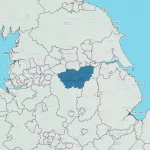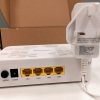Telford and Wrekin Achieve 98% Superfast Broadband Coverage
The Telford and Wrekin Council in Shropshire (England) and Openreach (BT) have announced the completion of their joint £5.6m rollout of FTTC based “superfast broadband” (24Mbps+) technology in the region, which can now cover 98% of local homes and businesses.
The Superfast Telford project is separate from the wider state aid supported scheme in Shropshire, not least because the area already had good coverage of superfast broadband at the time when the government’s first Broadband Delivery UK contracts (Phase 1) were being signed. However the local authority eventually decided to engage with BDUK for Phase 2 after the coverage targets were raised.
The contract, which was agreed all the way back in early 2015 (here), has now enabled Openreach’s fibre-based broadband network to extend and cover an additional 9,000 premises in the region. We note that it was originally supposed to complete at the end of 2017.
Advertisement
The percentage of borough premises able to access minimum broadband speeds of at least 15Mbps has also increased to 99%, which puts it close to universal coverage.
Councillor Hilda Rhodes, Cabinet Member for Broadband, said:
“We invested in Superfast Telford to help transform the way people live, work, learn, socialise and do business.
The benefits include a more harmonious and happy home or business, a better work/life balance, being able to do things quicker, access to entertainment and learning something new.
Superfast Telford has been a great success story for the borough and I’m delighted we have such positive outcomes from our significant initial investment, which positions us ahead of our neighbouring authorities. In the meantime, we’re working hard to find cost-effective solutions to make the faster broadband available to the premises not already covered.”
Kim Mears, Openreach’s MD of Ifrastructure Development, said:
“Deploying fibre broadband to even more of Telford and Wrekin’s smallest, most remote areas can be very challenging. But due to the successful partnership with Superfast Telford, we’ve now achieved our target of making the technology available to 98 per cent of the borough’s households and businesses, and our engineering teams are close to completing the final upgrades.”
The Council’s management of the project has also helped to drive higher than expected take-up, with 37% of homes and businesses already opting for an upgrade – the third highest in this phase of the BDUK programme. If this is maintained, the projected return for the council (gainshare/clawback and savings) will be between £475,000 and £850,000 over the life of the contract.
The project was funded by £2m from the local council, £1.6m from BT and £2m from BDUK.
Mark is a professional technology writer, IT consultant and computer engineer from Dorset (England), he also founded ISPreview in 1999 and enjoys analysing the latest telecoms and broadband developments. Find me on X (Twitter), Mastodon, Facebook, BlueSky, Threads.net and Linkedin.
« Truespeed CEO – We Hope to Reach 200,000 UK Premises with FTTP
Delays Bog Down ABC Rural Broadband Subsidy Scheme in Wales »

















































Comments are closed